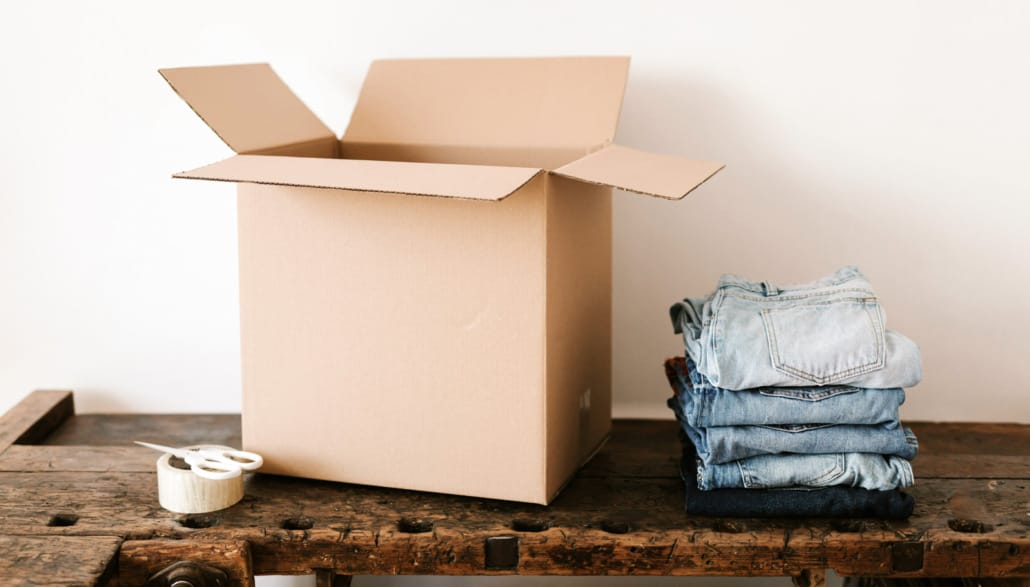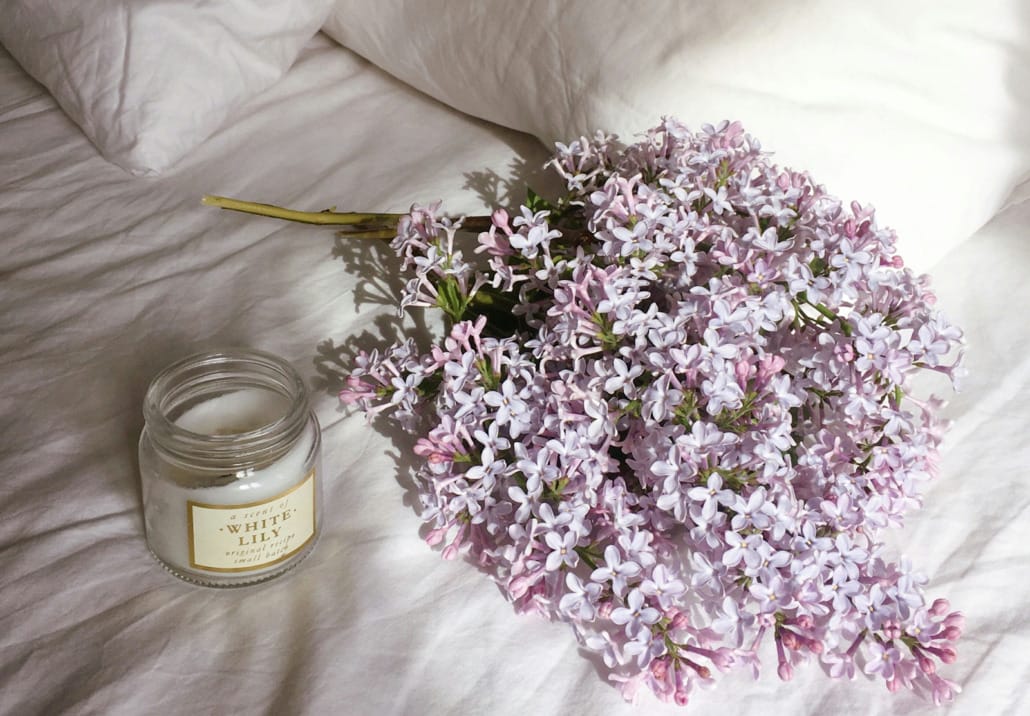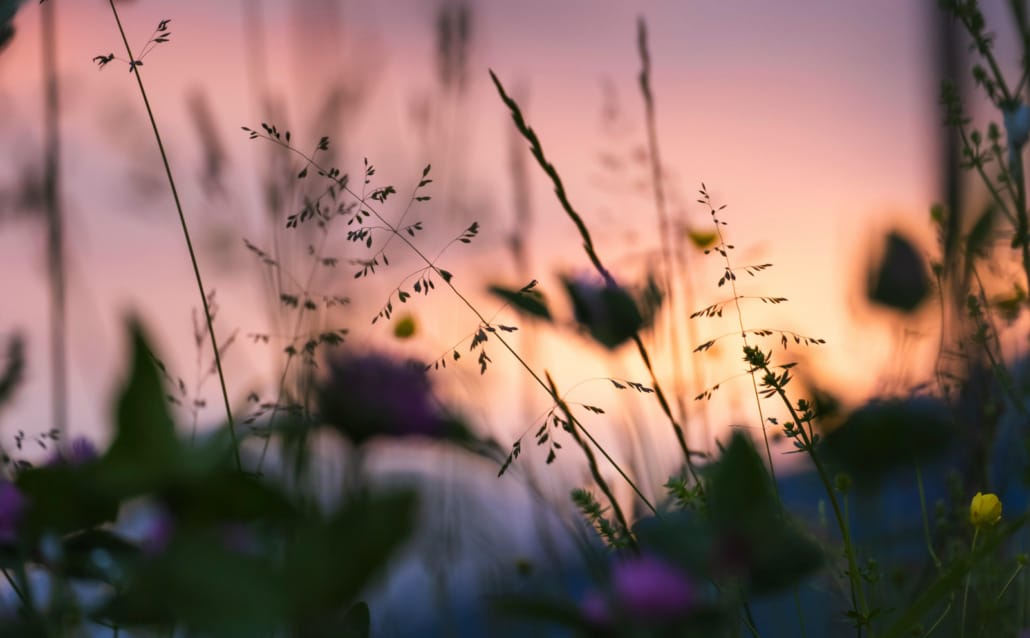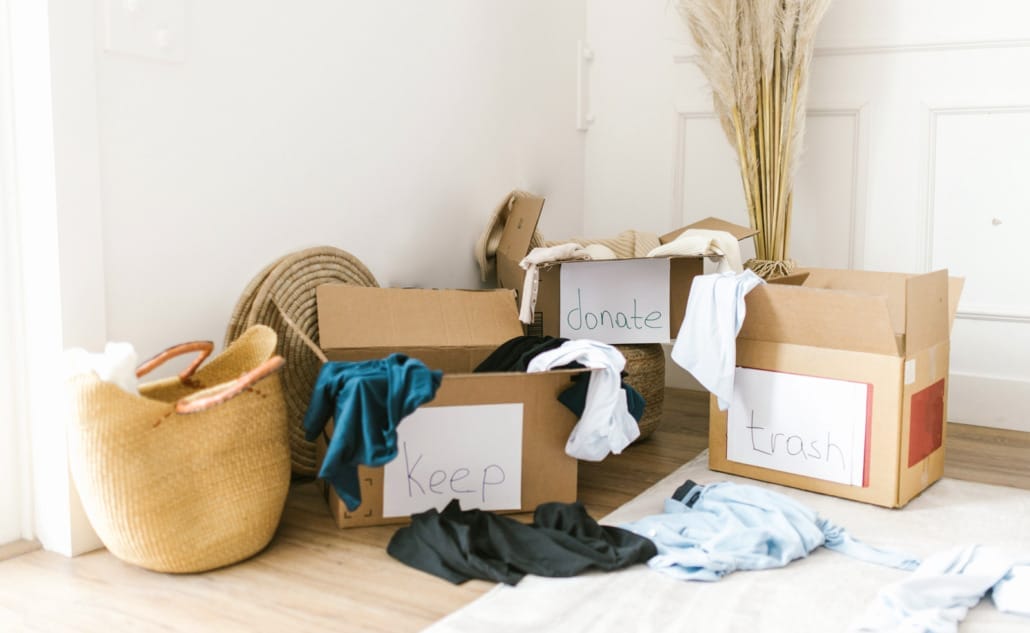Have you ever cleaned out a drawer or sorted through a cluttered closet and felt like you could breathe a little deeper? That lightness you feel isn’t just about having fewer things, it’s something deeper. Decluttering can be an emotional release, a spiritual reset and a gift to your mental health.
Spring is the perfect season for it. As the earth begins to thaw and bloom, we’re invited to do the same: shake off the heaviness of winter and make space for new growth, inside and out.
Decluttering isn’t just about tidying up. It’s about creating space for peace, clarity and alignment with the life you truly want to live.

1. Clearing Clutter Calms the Mind
Visual clutter creates mental noise. When your environment is chaotic, your thoughts also often follow. A cluttered space can increase feelings of anxiety and overwhelm – a clear space invites calm and focus.
When you remove the things that distract or drain you, you give your mind a break and gain more clarity.
2. Your Environment Carries Energy
Everything around you has energy: memories, emotions, stories. That old stack of papers? The sweater from a relationship that ended? These things may seem small but they’re often connected to old versions of you, outdated dreams or unresolved feelings.
Letting them go is more than organizing, it’s a process of releasing and a way of saying: I’m ready to move forward.

3. Decluttering Can Be a Spiritual Practice
What if decluttering was less of a task, and more of a ritual? Light a candle, take a breath, and ask: What no longer brings me joy? Start with one drawer or one shelf. Let it be slow, intentional and even sacred.
As you let go, you’re not just making space on your shelves, you’re clearing room in your life for more peace, joy and alignment.
4. Build Confidence and Momentum
Even a small win like finally sorting that junk drawer can spark momentum. You start to feel empowered, capable and in control again. Each space you reclaim becomes a reminder: I can create the environment and the life I want.

5. Decluttering Supports Mental Health
Research backs it up: cluttered environments can increase stress, reduce focus and even impact sleep. On the flip side, an organized, soothing space can regulate your nervous system, support better rest and boost your mood.
It’s not about perfection. It’s about creating an environment that supports your well-being.
Reconnect with Yourself
Decluttering is an act of self-care. It’s saying: I deserve to feel peaceful in my space. This process is an empowering way of reconnecting with yourself, clearing away the noise and feeling more at peace.
So be gentle with yourself, start small and trust that each thing you release is making space for something new to grow.

Grieving the loss of my relationship
/in Dating and Relationships/by Unbridled RetreatsI currently have my laptop on my right and The Right to Write by Julia Cameron, on my left. I also have my phone playing Tim Wheater’s flute music which the book suggests. I know two things for sure in this moment: number one, I feel called to write and number two, I’m stuck on what to write about. There are a few significant topics in my life right now and I’m scared to write about them. The biggest topic that keeps coming up and brings tears to my eyes in this moment, is my recent breakup.
It jolts me when I think too long and hard about it. The loss of a wonderful man in my life. The loss of our dreams together. The pain and ache in my heart that hits when I think about the memories we shared. The gut-wrenching feeling before I open my eyes in the morning, knowing he’s not there.
The grief is raw and the tears come in waves.
For the first time in my life, when someone says. “How are you doing?”, I don’t answer “Fine” or “Good.” Instead, tears start to leak before words come out. My body won’t let me hide the truth.
I can’t deny how I feel and my vulnerability defenses are down.
My mantra fluctuates multiple times a day between “You’re going be ok” to “God, please help me.” I have wailed into Blue’s mane. I have screamed in my car. I have beaten and sobbed into pillows.
It feels messy and cleansing at the same time…allowing my heart to ache and express itself. I’m not shoving down the feelings I don’t want to face like I have in the past.
What I am learning is to let grief move through me. To not resist it or put an expiration date on sadness.
I’m not in the place of “getting over it”, nor is it time to move on. It is time to honor and mourn the heart-opening love I experienced. Grief is teaching me to listen to my heart and what it needs. I know “Strong Devon” and in recent years I’ve gotten to know “Soft Devon” but “Openly Sad and Hurting Devon” is a new one for me. Allowing my sadness to be heard, seen, and acknowledged is what my heart needs to heal.
By writing about it, I no longer feel stuck. I feel open and connected.
“Grief is a matter of the heart and soul. Grieve your loss, allow it in, and spend time with it. Suffering is the optional part. Love never dies and spirit knows no loss. Keep in mind that a broken heart is an open heart.” – Lousie Hay
Allowing it in,
Devon
The Healing Power of Decluttering
/in Uncategorized/by Unbridled RetreatsHave you ever cleaned out a drawer or sorted through a cluttered closet and felt like you could breathe a little deeper? That lightness you feel isn’t just about having fewer things, it’s something deeper. Decluttering can be an emotional release, a spiritual reset and a gift to your mental health.
Spring is the perfect season for it. As the earth begins to thaw and bloom, we’re invited to do the same: shake off the heaviness of winter and make space for new growth, inside and out.
Decluttering isn’t just about tidying up. It’s about creating space for peace, clarity and alignment with the life you truly want to live.
1. Clearing Clutter Calms the Mind
Visual clutter creates mental noise. When your environment is chaotic, your thoughts also often follow. A cluttered space can increase feelings of anxiety and overwhelm – a clear space invites calm and focus.
When you remove the things that distract or drain you, you give your mind a break and gain more clarity.
2. Your Environment Carries Energy
Everything around you has energy: memories, emotions, stories. That old stack of papers? The sweater from a relationship that ended? These things may seem small but they’re often connected to old versions of you, outdated dreams or unresolved feelings.
Letting them go is more than organizing, it’s a process of releasing and a way of saying: I’m ready to move forward.
3. Decluttering Can Be a Spiritual Practice
What if decluttering was less of a task, and more of a ritual? Light a candle, take a breath, and ask: What no longer brings me joy? Start with one drawer or one shelf. Let it be slow, intentional and even sacred.
As you let go, you’re not just making space on your shelves, you’re clearing room in your life for more peace, joy and alignment.
4. Build Confidence and Momentum
Even a small win like finally sorting that junk drawer can spark momentum. You start to feel empowered, capable and in control again. Each space you reclaim becomes a reminder: I can create the environment and the life I want.
5. Decluttering Supports Mental Health
Research backs it up: cluttered environments can increase stress, reduce focus and even impact sleep. On the flip side, an organized, soothing space can regulate your nervous system, support better rest and boost your mood.
It’s not about perfection. It’s about creating an environment that supports your well-being.
Reconnect with Yourself
Decluttering is an act of self-care. It’s saying: I deserve to feel peaceful in my space. This process is an empowering way of reconnecting with yourself, clearing away the noise and feeling more at peace.
So be gentle with yourself, start small and trust that each thing you release is making space for something new to grow.
Frequently Asked Questions
/in Uncategorized/by Unbridled RetreatsWhat is the age range of retreat participants?
Our past retreat participants have ranged in age from 21 to 84. Unbridled Retreats are designed to support and inspire women and men in every stage of adult life.
How many participants attend a retreat?
Each retreat is limited to a maximum of 12 participants. This small group size creates an intimate setting and allows for personalized attention, ensuring a truly transformative experience.
What happens at an Unbridled Retreat?
While each retreat has slight variations in the itinerary, the core schedule remains consistent across all locations, ensuring a transformative and empowering experience. You can click here to view a sample schedule.
Can I attend alone?
Absolutely! Most of our retreat participants are solo travellers, so you’ll be in great company. Our retreats foster a warm and welcoming atmosphere where meaningful connections naturally unfold.
Is it possible for my family/spouse to share my room if they don’t attend the retreat?
The equine coaching sessions involve deep personal reflection, and having quiet time in your room will help you fully process everything covered during the retreat. We recommend leaving your loved ones at home so you can fully embrace the retreat experience, focus on yourself, and enjoy the maximum benefits of this time for personal growth.
Does each retreat provide the same experience?
Yes! While the locations may vary, the heart of the Unbridled Retreats experience remains the same. We maintain high standards to ensure each guest enjoys a personalized, transformative journey and leaves feeling empowered and ready to take their next steps.
Are meals included?
Yes. All meals are included. Enjoy gourmet, nourishing meals along with non-alcoholic beverages. Some ranches/resorts include select alcoholic beverages; others offer them for separate purchase.
Do I need horse experience?
Not at all! Our retreats are designed for all experience levels, whether you’re new to horses, haven’t ridden in years, or are an experienced rider. No prior horse experience is required, and every ranch/resort provides friendly, safe horses for every riding level.
Do I have to participate in every activity?
The morning Equine Coaching sessions are the core of the retreat and are highly encouraged. Please note that Equine Coaching sessions are unmounted (no riding involved). Beyond that, you can tailor your experience with optional afternoon activities, including horseback rides, relaxing by the pool, journaling, enjoying a massage, or going for a scenic walk.
Three Yoga Poses to Calm the Nervous System
/in Health and Wellness/by Unbridled RetreatsThese 3 poses — Child’s Pose, Legs Up the Wall Pose, and Crocodile Pose are excellent ways to calm the nervous system. Child’s Pose gently stretches the body and promotes mindfulness, Legs Up the Wall helps boost circulation and ease stress, and Crocodile Pose encourages full-body relaxation and emotional release. They invite deep breathing and activate the parasympathetic nervous system, effortlessly melting away tension and anxiety. Together, they offer a simple yet powerful way to reconnect with yourself.
Ready to experience their calming benefits?
Below is the step-by-step guide on how to practice Child’s Pose, Legs Up the Wall Pose, and Crocodile Pose.
Child’s Pose (Balasana)
1. Begin on your hands and knees in a tabletop position.
2. Spread your knees wide apart while keeping your big toes touching.
3. Sit your hips back toward your heels. If needed, use a cushion for support.
4. Exhale and lower your torso between your thighs, resting your forehead on the mat.
5. Stretch your arms in front or let them rest alongside your body, palms up.
6. Close your eyes, relax your jaw, and take deep breaths, sinking deeper into the pose.
7. Stay for 30 seconds to a few minutes, focusing on your breath.
8. Walk your hands back and lift your torso to return to a seated or tabletop position.
Legs Up the Wall Pose (Viparita Karani)
1. Sit next to a wall, with one side of your body against it.
2. Gently lower your back to the ground while swinging your legs up the wall.
3. Your hips should be as close to the wall as comfortable; you can use a folded blanket under your hips for support.
4. Keep your legs straight and relaxed against the wall, with your arms resting at your sides or overhead.
5. Close your eyes and breathe deeply, allowing your body to relax into the pose.
6. Stay for 5 to 10 minutes, focusing on your breath and letting go of tension.
7 .Bend your knees and roll to one side before slowly coming back up to a seated position.
Crocodile Pose (Makarasana)
1. Start by lying face down on your yoga mat.
2. Keep your legs extended straight back, with your feet hip-width apart and toes pointing outwards.
3. Bend your elbows and place your forearms on the mat, creating a cushion for your head. Your palms can touch or rest side by side.
4. Rest your forehead on your arms, allowing your neck and spine to relax.
5. Close your eyes and take slow, deep breaths, focusing on relaxing your entire body.
6. Stay in this position for 5 to 15 minutes, letting tension melt away.
7. Gently lift your head, lower your arms, and roll onto your side before slowly rising to a seated position.
30 Ways to Slow Down This Fall
/in Health and Wellness/by Unbridled RetreatsAs autumn arrives and the pace of life naturally slows, it’s the perfect time to embrace the season’s new energy. The crisp air, changing leaves, and shorter days invite us to step back and savor the little things. In this post, I’m sharing 30 simple ways to slow down for fall, helping you enjoy the season with more mindfulness and ease. Whether it’s through small rituals or seasonal activities, these tips will help you embrace the beauty and peace that autumn brings.
Cozy Up at Home
1. Read a book under a warm, fluffy blanket – perfect for a quiet, chilly evening.
2. Take a warm bubble bath – unwind with some self-care.
3. Embrace the art of slow cooking – put on some music, and enjoy the process.
4. Stock up on fall-spiced teas – pumpkin spice, chai, cinnamon, and apple.
5. Watch Hocus Pocus (1993) – the perfect Halloween classic to get into the spooky spirit!
6. Stock up on new warm, fuzzy socks.
Creative Fall Fun
7. Tap into your creative side – try knitting or paint-by-number kits.
8. Visit a costume store – browse through costumes and decorations for some Halloween fun!
9. Start a gratitude jar – place it in a visible spot and fill it with notes of gratitude throughout the season.
Outdoor Adventures
10. Take a walk in nature – immerse yourself in the colors, smells and sounds of autumn.
11. Visit a local farmer’s market – gather fresh fall harvest goodies.
12. Watch a full moon rise – a peaceful and beautiful way to connect with the season.
13. Take a blanket to a park – lay down and watch the leaves dance in the sunlight.
Seasonal Rituals
14. Gather fall/winter recipes – soups, stews, and casseroles for those chilly nights.
15. Make a homemade pumpkin spice latte – a cozy fall classic you can whip up at home.
16. Reflect on spring and summer – set intentions for fall based on what you’ve learned this year.
17. Make a list of fall and winter activities for your family.
Spread Kindness
18. Donate sweaters, coats, and winter outerwear – help those who need warmth this season.
19. Drop off baked goods for a neighbor or friend – a simple way to brighten someone’s day.
20. Pick up the phone and call a friend or family member – skip the text or email, and leave a heartfelt message if they don’t answer.
Mindful Moments
21. Start a gratitude journal – reflect on the things you’re thankful for each day.
22. Make a list of ten things you love about your life right now – it’s a great way to boost positivity.
23. Declutter your living space – clear out what no longer serves you.
24. Engage in gentle exercise – try yoga, tai chi or a peaceful nature walk.
25. Take advantage of the extra morning hour when the clocks turn back – use this time for something just for you.
Connect with Nature
26. Fill your bird feeders – keep the birds around with seeds.
27. Open your windows to let in the cool, crisp air each day.
Simple Pleasures
28. Enjoy warm beverages – take time to savor each sip.
29. Find a cozy spot and listen to your favorite artist or band – do nothing else, just listen.
30. Host family or friend board game or puzzle nights – enjoy some screen-free bonding time.
Healing the Father Wound
/in Healing/by Unbridled RetreatsWritten by an anonymous member of the Unbridled community
I was four years old. I was there when my mom, unaware she was carrying twins, broke down in tears upon hearing the news. She was overjoyed but filled with uncertainty as she knew she would be raising three children without a loving partner.
My childhood was marked by a profound sense of loss and abandonment. My dad, who should have been a source of love and support, was mostly absent. He officially left while I was away visiting family on a summer trip. I was eight years old at the time. Looking back, it seems this was carefully planned as a way to avoid facing the consequences of his actions. But I was old enough to understand and feel pain when I found out I would see him every other weekend (pending availability). I was old enough to feel disappointed when he would stop by on Christmas morning instead of spending the day with us. He had other plans with the woman who replaced my mom.
I can’t even begin to understand the emotional toll this took on my mother as she shielded us from the harsh reality of his emotional detachment. I’d sometimes catch her crying when she thought no one was looking, even though she mostly tried to put on a brave face for her young children. I’m so grateful that my mom had and still has endless love and affection to give us.
My childhood led to a lifetime of anxiety, depression, low self-esteem and low self-worth. I developed a strong need for validation, constantly seeking approval from others. To protect myself from further hurt, I built a wall around myself, keeping people at a distance to avoid potential abandonment and rejection. Witnessing my father’s infidelity eroded my trust in men. His betrayal left me questioning whether I would ever be able to find a loving partner I could trust. My long-term relationships were mostly plagued with doubt and suspicion.
In my early 40s, becoming a mother triggered a need to heal from the wounds of my past. I sought the help of therapists and a healer who guided me through powerful healing sessions, including one focused on my relationship with my dad. My healer and I meditated together and I experienced a breakthrough. For the first time in my life, I felt compassion for him. Tears streamed down my face as I felt a sense of peace. I understood that this was bigger than me.
I’ve come to realize that my father’s behavior was likely a result of his unresolved emotional issues. His avoidance tactics, such as workaholism, infidelity and possibly alcoholism, might have been attempts to cope with underlying pain or trauma. Maybe his own emotional neglect had been passed down from generation to generation. I realized that he might be living a life full of pain.
That said, I still find it difficult to have a relationship with him as he is still the same person as he was in my childhood but I make a point to see him because I want my kids to grow up knowing their grandfather.
The reality is that when my dad was growing up and had young children of his own, mental health wasn’t really a topic of discussion. Although I don’t think he’ll ever seek to heal, as a collective we’ve opened our eyes to mental health issues and the benefits of healing our trauma.
As a parent, I feel a deep responsibility to heal my own wounds so that I don’t pass them on to my kids. It’s a challenging journey, but I’m proud of the progress I’m making, for myself and for them. I’m trying my best to raise my sons by showing them love and that it’s ok to feel emotions, even when they’re hard to sit with. It’s ok to express them, it’s ok to cry. It’s ok to not be ok.
Unresolved trauma will keep tapping us on the shoulder until we address it. It is only by facing our fears and emotions head-on that we can truly heal and break free from the cycle of pain.
While sharing my story is therapeutic, it’s also a way to offer hope to others who have experienced deep pain in their past. Healing is possible, even when it seems impossible. By seeking support, confronting our pain, and breaking free from the shackles of the past, we can forge a brighter future for ourselves and our families.
Anonymously yours,
B
PS – My mom is now married to a wonderful and kind man who treats her like gold. They’ve been together for over 30 years and are still madly in love!